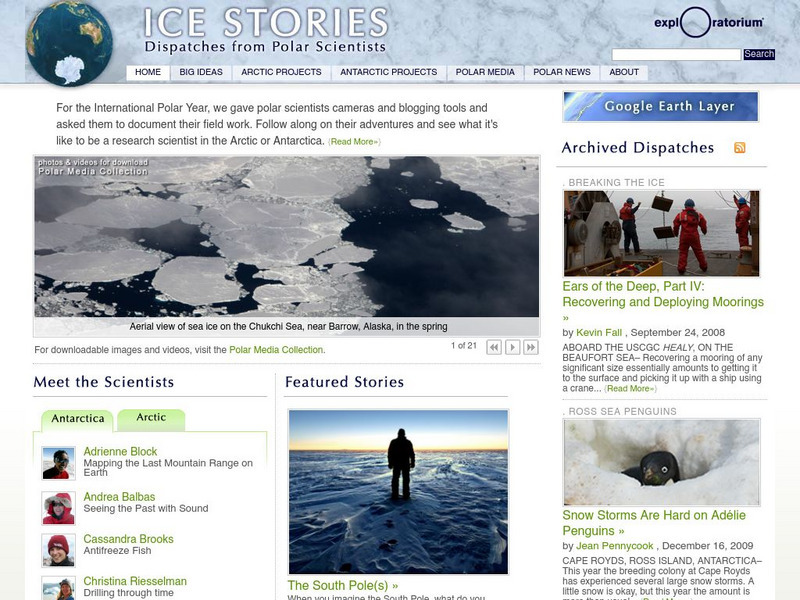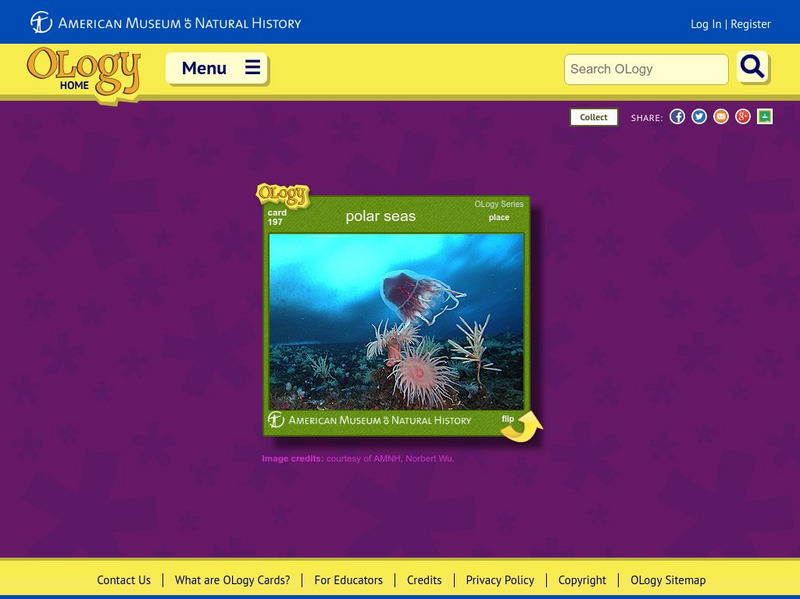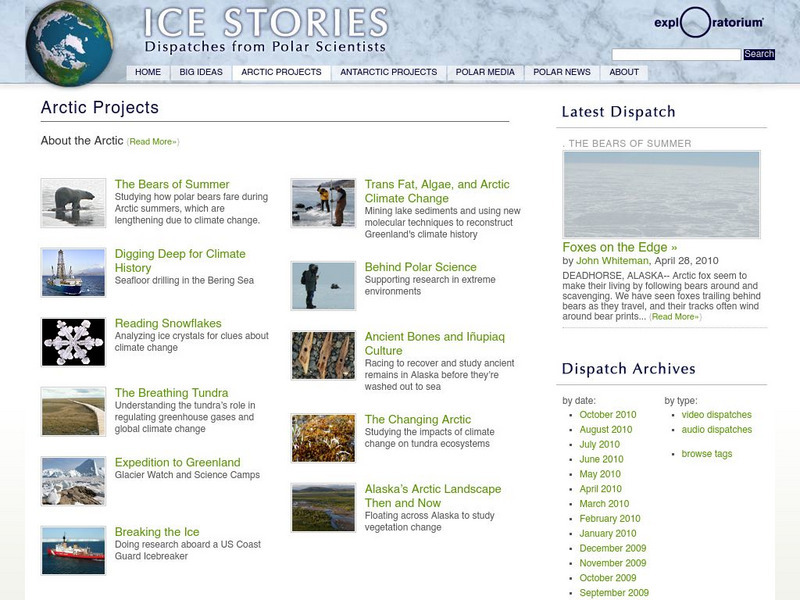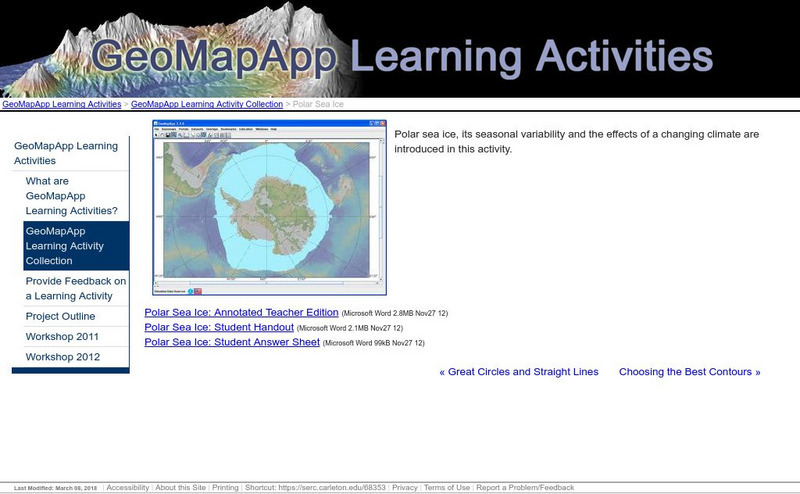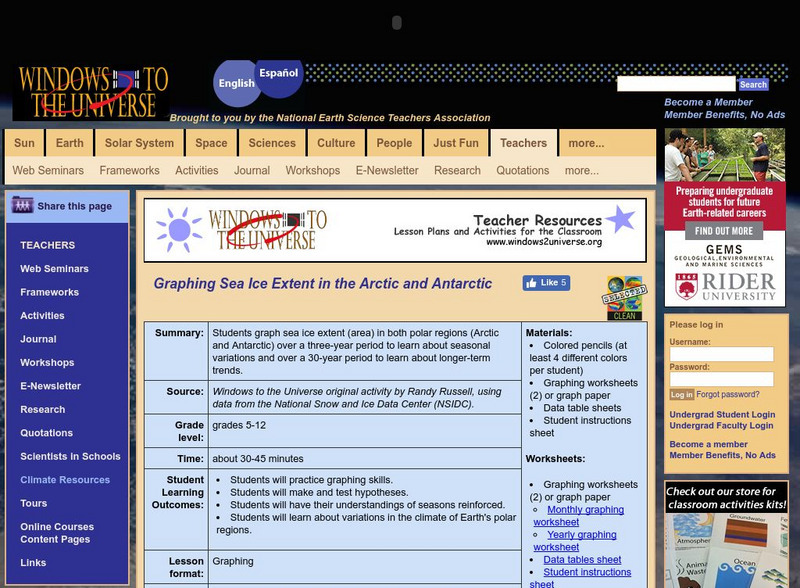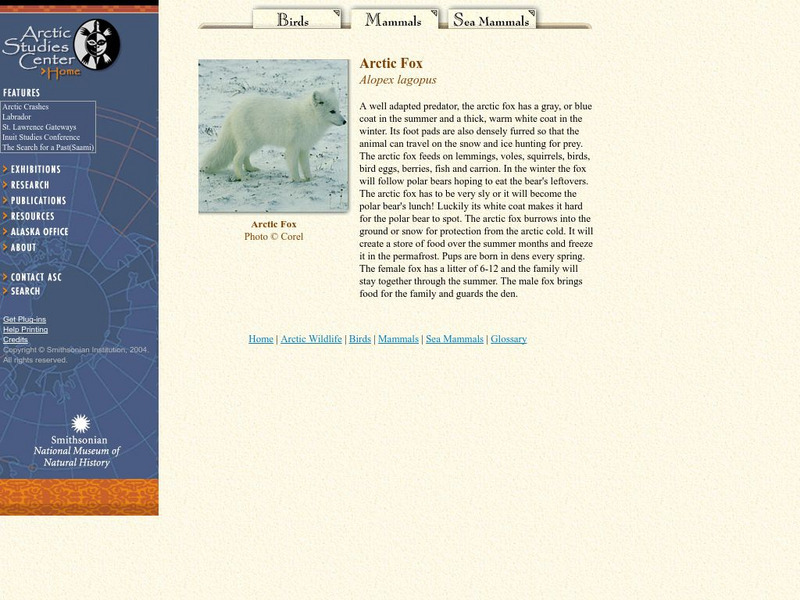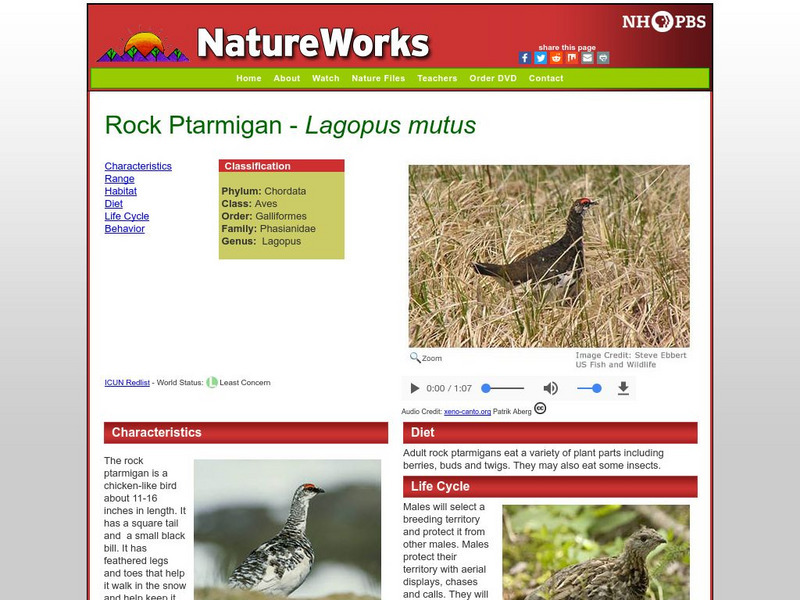World Wildlife Fund for Nature
Wwf: Our Earth: Ecoregions: Habitats: Polar Regions
A simple introduction and overview of the polar regions. Includes a link to information about animals that live in a polar habitat.
University of Texas at Austin
Ut Library Online: Historical Maps of the Polar Regions
This collection from the University of Texas Library Online of historical maps contains a variety of maps from various parts of the polar region and from different parts of history. Each map is accompanied by a brief description and is...
Other
Canadian Arctic Profiles
Detailed sections providing further information on the Canadian Arctic's exploration, climate, maps, migration, and indigenous people, make this resource useful for many topics. Put together with images, this resource is useful for high...
Other
Polar Continental Shelf Project for Kids!
Visit this resource to learn about the geography, wild life, plants and people of Polar Continental Shelf in Canada's Arctic. Students can take a quiz to see how much they have learned.
Ohio State University
Beyond Penguins and Polar Bears
This online magazine for educators is geared to integrate inquiry-based science and literacy focused in the concentrated area of the arctic and antarctic.
Ohio State University
Beyond Penguins and Polar Bears
This online magazine for educators is geared to integrate inquiry-based science and literacy focused in the concentrated area of the arctic and antarctic.
National Science Foundation
National Science Foundation: Arctic & Antarctic
The National Science Foundation has conducted extensive research on this region that is often thought of as barren and devoid of all scientific promise. Learn more about these frigid regions and what is being done to understand more...
National Earth Science Teachers Association
Windows to the Universe: Warming of the Polar Regions
Learn about the climate in the Polar regions and how it is affected by global warming. Links to related material.
Smithsonian Institution
National Museum of Natural History: The Hall of Arctic People
This is the online version of the Smithsonian Institute's exhibit devoted to the people of the Siberian and North American Arctic. The mannequins around the walls represent the peoples of the Crossroads region, dressed in traditional...
Exploratorium
Exploratorium: Ice Stories: Dispatches From Polar Scientists
During the International Polar Year, scientists descended on the Arctic and the Antarctic in droves. While there, they documented their experiences and research work. That rich database of information, covering November 2007 to October...
American Museum of Natural History
American Museum of Natural History: Polar Seas O Logy Card
Flip over this interactive OLogy card and start learning bite-size pieces of useful information about the marine life that lives in polar-sea regions.
Exploratorium
Exploratorium: Ice Stories: Arctic Projects
Scientific research projects being done in the Arctic are showcased here. Projects cover a variety of topics, e.g., polar bears, the impact of climate change and glaciers. There are numerous links to articles, as well as video and audio...
Science Education Resource Center at Carleton College
Serc: Polar Sea Ice
Polar sea ice, its seasonal variability, and the impact of a changing climate are investigated in this activity. Students will also explore the differences between polar regions that result from Antarctica being a continent and the north...
National Earth Science Teachers Association
Windows to the Universe: Graphing the Extent of Sea Ice in Arctic and Antarctic
Students graph sea ice extent in both polar regions over a three-year period to learn about seasonal variations, and over a 30-year period to learn about longer-term trends.
University of Waterloo (Canada)
University of Waterloo: Archaeology in Arctic North America
A resource regarding the Arctic region and a look at some of the recent archaeological projects there. The introduction offers a short look at the geography and history of the area.
University of Guelph
Canada's Polar Environments
This site is a set of images along with volumes of information make this site a treasure trove. The site has satellite images.
Other
Scott Polar Research Institute: Polar Bears
Here you can learn about polar bears: where they live, what they eat, and what each part of their body is adapted for.
Science Education Resource Center at Carleton College
Serc: Sea Ice Extension for the Earth as a System Learning Activity
The purpose of this lesson is for students to learn how the Earth's systems interact on a global level. They will examine global environmental data and compare this to data on the polar regions. In the process, they will develop an...
University of California
Polar Bear Capital of the World
Churchill, Canada is known for its polar bear population before the bay freezes. Find out all about this incredible visitation every year. Read polar bear facts, lore, rules of bear safety, and wildlife management applied to polar bears.
Other
Canada and the Circumpolar World
This government resource has information about Canada's policies in the Arctic, and the activities it is involved in to protect and maintain sovereignty over the Canadian Arctic.
Smithsonian Institution
National Museum of Natural History: Arctic Studies Center: Arctic Fox
This site takes a brief look at the Arctic Fox, focusing on this animal's adaptations to the harsh climate of its environment.
Smithsonian Institution
National Museum of Natural History: Wildlife Portfolio
The Smithsonian Arctic Studies Center offers a portfolio of arctic animals. A page dedicated to each animal provides a physical description, personal observations of the animal in the wild, and several pictures.
Missouri Botanical Garden
Missouri Botanical Garden: Tundra Animals
Explore this comprehensive resource on the birds and mammals of the tundra. This resource features information such as diet, class, order, size, habitat, conservation range and the like.
PBS
Nh Pbs: Nature Works: Rock Ptarmigan
Discover how the Rock Ptarmigan lives in the Tundra when you check out this site. This resource features photographs, information on characteristics, life cycle and more.





